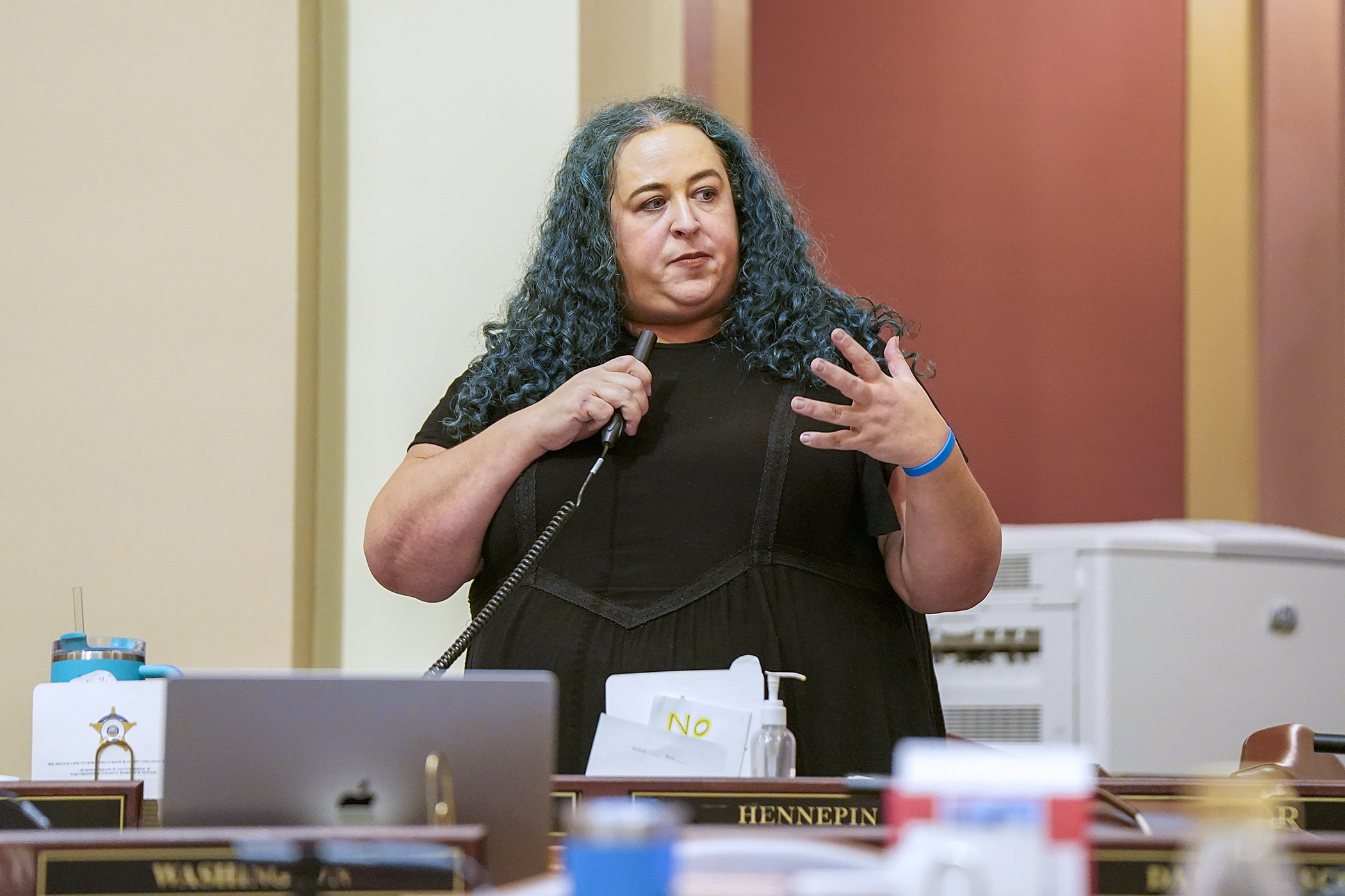Tax bill with advance payments of credits passes House

Updated - 8:55 p.m.
While the 2024 House tax bill appears modest by comparison with the 2023 edition, it would expand the scope of some of last year’s provisions and call for more transparency from corporate filers, much to some House members’ chagrin.
Sponsored by Rep. Aisha Gomez (DFL-Mpls), HF5247, as amended, would make last year’s child tax credit available to households with 18-year-olds (instead of cutting it off at age 17) and make it possible to stagger the credit over the course of multiple payments. It would also allow seniors to receive advance payments on their homestead credits, and direct the Department of Revenue to develop a tax preparation program that would be free for most filers.
Debate on the bill started Friday afternoon and continued into the evening before the House passed it by a vote of 68-60. It now heads to the Senate.
“The bill is small, compared to our bill last year, but it builds on our good work we did in the 2023 session,” Gomez said. “There are bills from members of both parties in the bill. … We still put families and children at the center of our work. We put low-income families at the center of our work.”
[MORE: See more of what’s in the bill and view the spreadsheet]
Of the more than a dozen amendments Republicans offered, two were adopted: a proposal from Rep. Kristin Robbins (R-Maple Grove) that would authorize veterans organizations to use gross profits from legal gambling for repair, maintenance or improvement of property; and another to provide property tax relief to disabled veterans.
Among those that inspired the most lively debate was one from Rep. Patti Anderson (R-Dellwood) that would have eliminated the bill’s section calling for public disclosure of some corporate tax information.
“This is going to continue to push companies out of the state,” Rep. Jim Joy (R-Hawley) said. But Gomez advocated for the public disclosure.
“People have inalienable rights to privacy,” she said. “But corporations are not people. … Fundamentally, this is about multi-billion-dollar corporations that pay no taxes. People in Minnesota are bothered by that.”
Some of the other unsuccessful amendments would have removed the bill’s language establishing land-value taxation districts and a corporate tax base erosion study. Others sought to create tax exemptions for all Social Security benefits, veterans organizations and baby products, establish an agricultural water quality credit, and eliminate the local sales tax equalization distribution account.
If you’re looking at the state’s balance sheet, here are some of the biggest costs to the General Fund in fiscal year 2025 from the bill’s proposed changes:
- expanding eligibility to 18-year-olds for the child tax credit, $7.8 million;
- direct free file system, $5 million;
- one-time aid increase to counties for homeless prevention aid, $4.4 million;
- one-time dedication to a solid waste management account, $1.8 million;
- aid to cities for emerald ash borer assistance, $1 million; and
- tax credit outreach grants, $1 million.
And if you’re among those using such tax preparation software as TurboTax or H&R Block, the bill asks the Department of Revenue to establish a direct free file system for individual income tax filers that would help you compute and file your state taxes (although you’d still be on your own with the federal returns). And, if you need help filing, grants would be provided for taxpayer assistance and outreach.
Related Articles
Search Session Daily
Advanced Search OptionsPriority Dailies
Speaker Emerita Melissa Hortman, husband killed in attack
By HPIS Staff House Speaker Emerita Melissa Hortman (DFL-Brooklyn Park) and her husband, Mark, were fatally shot in their home early Saturday morning.
Gov. Tim Walz announced the news dur...
House Speaker Emerita Melissa Hortman (DFL-Brooklyn Park) and her husband, Mark, were fatally shot in their home early Saturday morning.
Gov. Tim Walz announced the news dur...
Lawmakers deliver budget bills to governor's desk in one-day special session
By Mike Cook About that talk of needing all 21 hours left in a legislative day to complete a special session?
House members were more than up to the challenge Monday. Beginning at 10 a.m...
About that talk of needing all 21 hours left in a legislative day to complete a special session?
House members were more than up to the challenge Monday. Beginning at 10 a.m...